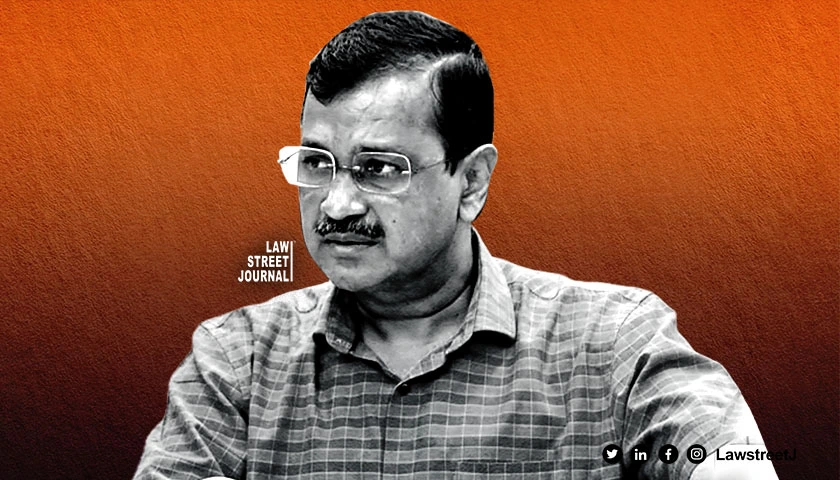NEW DELHI: The Delhi High Court on Wednesday rejected a plea filed by Delhi Chief Minister Arvind Kejriwal for interim release in a money laundering case in connection with the liquor policy scam, saying it can't allow the prayer without opportunity to the Enforcement Directorate to file a response.
"Any release order from custody will amount to enlarging the accused/petitioner on bail or interim bail, as an interim measure. The writ jurisdiction under Article 226 of the Constitution is not a ready substitute for recourse to the remedy of bail under Section 439 of the CrPC ordinarily," Justice Swarana Kanta Sharma said.
In its detailed order, the court said, it will be unfair to not give an opportunity to the Enforcement Directorate to furnish a detailed response to rebut a writ petition and other documents filed by Kejriwal.
Declining the opportunity to file reply would amount to denial of fair hearing as well as violation of one of the principles of natural justice, applicable to both the parties and not one, the court said.
The court issued notice to the ED on the plea by Kejriwal to declare his arrest on March 21, 2024 as illegal, arbitrary, and unconstitutional and to set aside the order of remand passed on March 22, 2024.
The bench asked the ED to file a reply on April 2, 2024 and fixed the matter for final disposal on April 3, 2024.
Senior counsel A M Singhvi, appearing for the petitioner, that no reply is required to be filed on behalf of the ED. The court, however, rejected the contention.
"While hearing and deciding a case, the court is duty bound to hear both sides fairly keeping in mind the principles of natural justice. Thus, the reply by Directorate of Enforcement is essential and crucial to decide the present case," the bench said.
The present petition raised several issues of legality and validity regarding the arrest and remand of the petitioner. Additionally, it questioned whether the arrest may be politically motivated and malafide, it said.
"There are also serious concerns raised by Singhvi on behalf of the petitioner, which relate to Article 21 of the Constitution and Section 19 of PMLA, as well as the validity of the statement of an approver. The necessity and timing of the arrest of the petitioner and the motive behind it has also been argued at length," the court noted.
The counsel has also raised serious and critical questions that this court being a constitutional court must apply its mind to the motive behind the arrest which is patently illegal and has a direct bearing on the democratic process of impending elections in the country, the bench said.
"In this courts opinion, such important questions and issues cannot be summarily heard and decided, by giving opportunity to only one party to file petition, documents, short note of arguments and compilation of judgments relied upon by them, especially when copy of the petition was provided to the Directorate of Enforcement Tuesday itself, and the short note of arguments and compilation of judgments relied upon by them were provided to the Court as well as the ASG during the hearing itself," the bench said.
The court remained conscious of the fact that to reach a conclusion as to whether the petitioner was entitled to immediate release or not, this court will necessarily have to decide the issues raised in the main petition, which are also the edifice of arguments seeking immediate release of the petitioner, the bench said.







![Delhi High Court Sets Aside Arbitral Tribunal's Award Against NHAI in Highway Project Delay Case [Read Judgment]](/secure/uploads/2023/07/lj_9605_23374c2e-392c-4491-a2fe-f2f12fc5272f.jpg)
![Delhi Court Rejects Stay Request in Defamation Case Against Rajasthan CM Ashok Gehlot [Read Order]](/secure/uploads/2023/08/lj_5208_80de1ddc-d76a-4f7f-b180-408e3ae14fb4.jpg)







